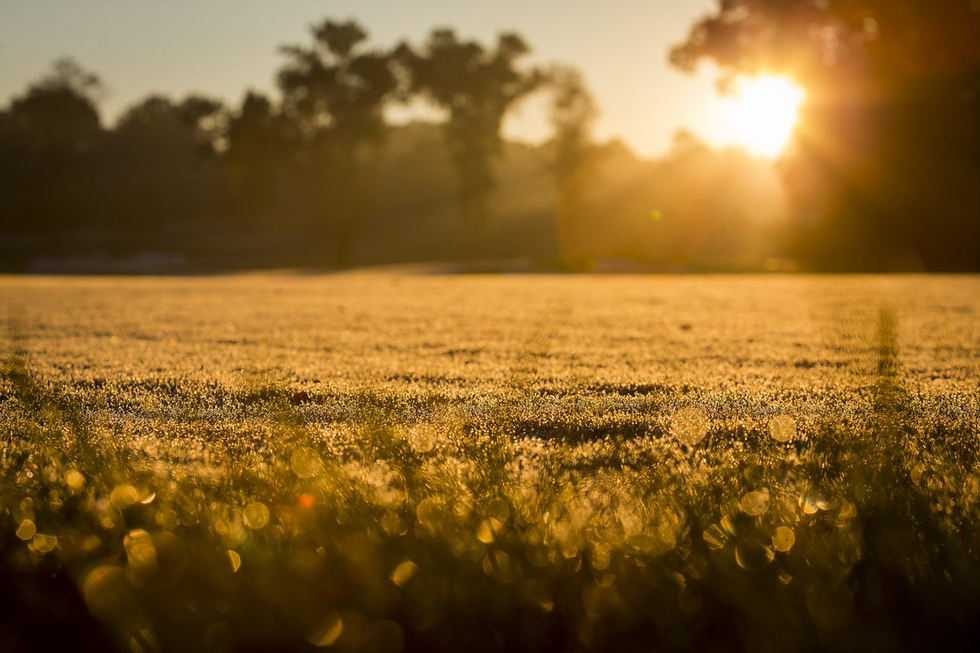The Case for Keeping (Some) Weeds
- Chris Johnson
- Apr 15, 2025
- 3 min read
How a few “weeds” might be helping your pasture more than hurting it
By Chris Johnson, Juniper Equiland
In the world of pasture management, weeds have long been cast as the villains—something to eliminate completely, often with a tank mix and a wide-angle nozzle. But what if some of them deserve a second look? Not every broadleaf is a threat. Some are quietly pulling minerals from deep in the soil. Others are feeding pollinators when little else is blooming. And a few are even offering nutritional benefits to grazing horses.
The truth is, pastures aren’t meant to be perfect green carpets. They’re living systems. And sometimes, a little biodiversity goes a long way.
Rewriting the Weed Playbook
It’s common to think of good pasture management as synonymous with weed eradication. But as more landowners focus on regenerative practices and seasonal strategies, a new picture is starting to form—one where certain “weeds” are seen not as nuisances, but as indicators, companions, or even allies.

Take dandelion, for example. It’s one of the first signs of life in an Aiken pasture after winter—bright yellow, easy to spot, and often overlooked. But it’s more than a visual nuisance. Dandelion provides calcium, potassium, and vitamins A and K, making it a micronutrient-rich nibble that horses often seek out instinctively. It’s also a critical nectar source for early-season pollinators when little else is blooming.

Blue toadflax is another one to notice. With its delicate lavender-blue flowers, it shows up quietly along fence lines and in sandy pockets of the pasture. It won’t compete with forage grasses, but it plays a big role in supporting native bees—especially in the early growing season.

Sorrel, often spotted by its reddish stems and tangy leaves, isn’t something to encourage heavily, but it’s also not a crisis. Horses rarely eat much of it, and its presence usually signals low pH or fertility—a helpful hint that the soil may need attention.

And then there’s clover, the classic love-hate story in Southeastern pastures. While it’s true that wet years can bring on slobbers from a fungus associated with white clover, that doesn’t negate its benefits: protein-rich, nitrogen-fixing, and highly palatable. In moderation, clover can be an ally—both to the soil and to the animals that graze it.
A Word for the Pollinators
It’s easy to forget, in the rush to fertilize, spray, and mow, that pastures are part of a much larger ecological system. And at the center of that system? Pollinators.
Bees—both native species and honeybees—are more than just springtime visitors. They’re critical workers in our food web. Roughly one in every three bites of human food depends on pollinators, and that includes the crops grown for hay and grain fed to horses. What feeds them, feeds us.
But beyond agriculture, pollinators play a keystone role in pasture ecology. Their presence (or absence) is an early indicator of land health. Without pollinators, wildflowers disappear. When wildflowers disappear, so do the insects and birds that rely on them. And when that happens, pasture systems become more fragile, less diverse, and more prone to invasive takeover.

Even small pastures—two, five, ten acres—can become refuges for pollinators if managed intentionally. Plants like blue toadflax, common goldenrod, coreopsis, and wild bergamot aren’t just pretty. They’re pollen and nectar machines, and they support hundreds of native species that, in turn, help regulate pests, improve plant resilience, and even aerate soil.
Preserving blooms in non-grazed margins, fencelines, or rest zones isn’t just good stewardship—it’s practical land management. Healthy pollinator populations contribute to better forage cycles, fewer weed outbreaks, and a more balanced ecosystem overall.
So yes—the bees matter. They always have. And they will always have a place on our farm.
Balance, Not Absolutes
None of this is to say that weed control doesn’t have a place. Toxic plants like ragwort or horsenettle should be removed immediately. Aggressive species like thistle and broomsedge can quickly overtake desirable forage and reduce grazing value. But a blanket approach to spraying—treating every broadleaf as a problem—may be costing more than it’s saving.
Our goal is balance. We scout first, spot-treat where needed, and preserve what's working in favor of long-term pasture health. The result is not just a better environment for horses—but one that supports soil biology, seasonal growth rhythms, and yes—the bees too.
Every season has a purpose. Every pasture tells a story.
And sometimes, that story is better when a few of the characters are wildflowers.
If a more intentional, seasonally informed approach to pasture care sounds like the right fit, we’re always happy to talk through options. Whether it’s treating an invasive patch or building pollinator margins, there’s more than one way to grow a better pasture.
Chris Johnson is the co-founder of Juniper Equiland, providing consultative pasture care for horse properties across Aiken County. Learn more at juniperequiland.com.




Comments